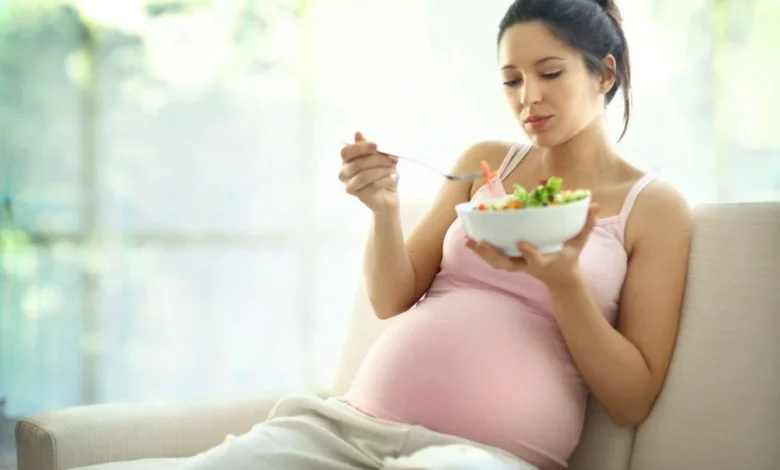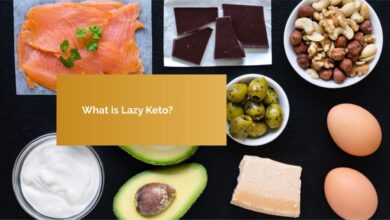Unbelievable Fruits to Eat During Pregnancy and Why: A Complete Guide for Expecting Mothers

Fruits to Eat During Pregnancy and Why: A Complete Guide for Expecting Mothers
Introduction

Pregnancy is a beautiful journey, but it comes with a lot of responsibility. The health of both the mother and the baby relies heavily on nutrition. One of the best ways to provide essential nutrients to your growing baby is through your diet. Among the various food groups, fruits are some of the most beneficial options for pregnant women. They’re packed with vitamins, minerals, antioxidants, and fiber that are crucial for both maternal and fetal health.
But why exactly should fruits be a staple in your pregnancy diet? Let’s dive into how fruits can benefit you during this special time and which ones should be included in your daily meals.
Understanding Nutritional Needs During Pregnancy
Key Nutrients Required During Pregnancy
Pregnancy increases the demand for essential nutrients to support both maternal health and the developing baby. Nutrients such as folic acid, iron, calcium, and vitamin C are particularly important during this time. Folic acid, for instance, helps prevent neural tube defects in the baby, while iron supports the increase in blood volume and prevents anemia. Calcium is vital for the development of the baby’s bones and teeth, and vitamin C plays a key role in boosting immunity.
Why a Balanced Diet is Crucial for Both Mother and Baby
A balanced diet ensures that the mother gets enough of these vital nutrients, while also supporting the baby’s growth. Fruits are an excellent source of vitamins and minerals, providing a wide array of nutrients that support overall health. Plus, fruits are easily digestible, making them an ideal choice for pregnant women dealing with nausea or morning sickness.
How Fruits Contribute to Pregnancy Health
Essential Vitamins and Minerals Found in Fruits
Fruits are rich in vitamins A, C, and K, all of which are vital during pregnancy. Vitamin A is crucial for the baby’s vision and immune system, while vitamin C strengthens the mother’s immune system and aids in the absorption of iron. Vitamin K supports blood clotting and bone health for both mother and baby.
Fruits and Their Role in Fetal Development
Fruits like avocados and oranges contain folate (vitamin B9), which helps reduce the risk of birth defects and supports the formation of the baby’s spinal cord and brain. Bananas and pears offer high potassium levels that are essential for heart and muscle function.
Fiber in Fruits for Digestive Health
Pregnancy often brings about digestive issues like constipation. Luckily, fruits are a natural solution. High-fiber fruits like apples, pears, and berries promote healthy digestion and help maintain regular bowel movements, alleviating constipation and bloating.
read also: How to Use Fruit to Lower Cholesterol: A Comprehensive Guide
Top 10 Fruits to Eat During Pregnancy

1. Oranges
Oranges are a pregnancy superfood thanks to their high vitamin C content, which boosts the immune system, fights off infection, and promotes collagen formation. The citrus fruit also helps in the absorption of iron, preventing iron deficiency
2. Apples
Apples are packed with fiber, which helps with digestion and prevents constipation, a common pregnancy issue. They are also low in calories, making them an ideal snack to keep hunger at bay without spiking your blood sugar.
3. Bananas
Bananas are rich in potassium, which helps prevent cramps and supports heart health. They’re also a good source of vitamin B6, which helps with morning sickness, making bananas a great addition to your diet during early pregnancy.
4. Avocados
Avocados are loaded with healthy fats, which support the baby’s brain and tissue development. They are also rich in folate, which reduces the risk of birth defects. The creamy fruit is also a great source of potassium and fiber.
5. Berries (Blueberries, Strawberries, Raspberries)
Berries are packed with antioxidants that protect cells from oxidative stress. They also provide high amounts of vitamin C and fiber, which are essential for both immune function and digestive health.
6. Pears
Pears are hydrating and a great source of fiber, helping with digestion. They also provide potassium and vitamin C, contributing to overall health during pregnancy.
7. Pomegranates
Pomegranates are rich in iron, which helps prevent anemia during pregnancy. They also contain antioxidants that support healthy circulation and blood health for both mother and baby.
8. Grapes
Grapes are high in vitamin K, which is essential for bone health and proper blood clotting. They’re also hydrating, making them an excellent fruit for staying hydrated throughout the day.
9. Mangoes
Mangoes are rich in vitamin A, which supports healthy fetal growth, and vitamin C, which boosts the immune system. They also offer plenty of fiber to aid digestion and prevent constipation.
10. Papaya (in moderation)
Papayas, when consumed in moderation, are rich in vitamin C and folate, which are important for the baby’s development. However, unripe papayas should be avoided as they contain latex, which may trigger contractions.
How to Safely Include Fruits in Your Pregnancy Diet
Recommended Daily Servings of Fruit
Pregnant women should aim for at least 2-4 servings of fruit daily. Be sure to include a variety of fruits to cover all essential nutrients, including vitamins, minerals, and fiber.
Tips for Eating Fruits Safely (Washing, Peeling, etc.)
Always wash fruits thoroughly to remove pesticides and bacteria. Peel fruits like apples and pears to avoid ingesting harmful chemicals or wax coating. Opt for organic options when possible.
Combining Fruits with Other Nutrient-Rich Foods
For a balanced meal, combine fruits with protein and healthy fats. For example, pair apple slices with almond butter or mix berries into a bowl of Greek yogurt for a nutrient-packed snack.
Fruits to Avoid During Pregnancy

High-Sugar Fruits and Gestational Diabetes
If you’re dealing with gestational diabetes, it’s important to limit high-sugar fruits like pineapple and watermelon, as they can cause blood sugar spikes.
Fruits with Risk of Listeria Contamination
Avoid unpasteurized fruit juices and ensure that fresh fruits are thoroughly washed to prevent the risk of foodborne illnesses, including listeria.
Tips for Managing Pregnancy with Healthy Fruit Choices
Creating a Balanced Meal Plan
Incorporate a variety of fruits into your daily meals and snacks to ensure you’re getting all the essential nutrients. Plan meals around fruits and combine them with other nutrient-dense foods.
Importance of Staying Hydrated with Fruits
Fruits like watermelon, grapes, and oranges are high in water content, helping to keep you hydrated throughout the day.
Timing Fruit Intake for Maximum Benefits
Consuming fruits during meals, especially with a protein or fat source, can help prevent blood sugar spikes and ensure better absorption of nutrients.
Conclusion
Fruits are a powerhouse of nutrients and should be an essential part of your pregnancy diet. From boosting immunity to aiding in fetal development, the benefits of eating fruits during pregnancy are undeniable. Be sure to include a variety of fruits like oranges, avocados, and berries in your daily meals to support both your health and the health of your baby.
read also5 Low-Calorie Fruits for Fast Weight Loss: The Best Natural Weight Loss Boosters
read also: How to Use Fruit to Lower Cholesterol: A Comprehensive Guide
FAQs
1. Can I eat papaya during pregnancy?
Yes, you can eat papaya in moderation during pregnancy, but avoid unripe papaya as it may cause complications.
2. Is it safe to eat grapes in early pregnancy?
Yes, grapes are safe to eat during early pregnancy. They are rich in vitamins and antioxidants that support fetal development.
3. What fruits help with morning sickness?
Bananas, apples, and citrus fruits like oranges can help relieve nausea and morning sickness due to their vitamin B6 and vitamin C content.
4. Are oranges good for pregnancy?
Yes, oranges are an excellent source of vitamin C, which boosts the immune system and helps with iron absorption.
5. How many servings of fruit should I have during pregnancy?
Aim for 2-4 servings of fruit per day, focusing on a variety of fruits to cover all essential nutrients.




